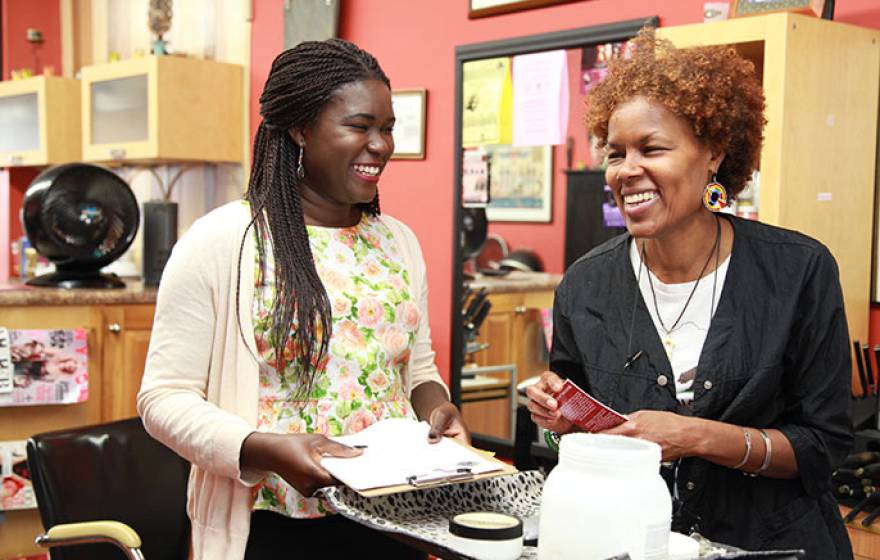UC Newsroom |
Napolitano addresses nation's community college leaders
Community college districts across the nation look to a partnership between UC and community colleges as a model for making a world-class education broadly accessible.
UC Office of the President |
Obama Administration lauds UC's commitment to Latino student achievement
White House Initiative on Educational Excellence for Hispanics salutes transfer program, CalTeach among '150 Commitments to Action.'
UC Berkeley |
Researchers find neural switch that turns dreams on and off
Neurons appear to play key role in REM sleep, the dream state in mammals accompanied by activation of the cortex and total paralysis of the skeletal muscles.
UC Newsroom |
UC tackles concussions
From expanding awareness in youth sports to conducting groundbreaking studies of collegiate athletes and military personnel, UC experts lead in advancing knowledge about traumatic brain injury and improving care.
UCLA |
Beauty's hidden health cost for African Americans
Ph.D. student raises awareness about potential health risks of certain hair products.
UC San Diego |
Crop cure
Scientists in new center to use medical research techniques to help food crops withstand drought and climate change.
UC Newsroom |
Six things parents and athletes need to know about concussions
Which sports have a higher risk of concussion? What should you do if a concussion is suspected? What steps should you follow before returning to play?
UC Davis |
UC Davis wins specialty-crops grant for lettuce project
Multidisciplinary researchers win specialty-crops grant for project to improve lettuce crops.
UC Riverside |
Lawn mower emission reduction device wins national award
Several generations of engineering teams have worked on the NOx-Out device to cut air pollution.
UCLA |
Tillman scholarship puts student veteran on a path to succeed in medicine
Fourth-year med student is also pursuing master's in public health, plans to work as a doctor with the Veterans Health Administration.
UC Santa Barbara |
Promoting team science
NSF grant puts UC Santa Barbara at the helm of interdisciplinary research effort to promote gender equity in the STEM workforce.
UC Merced |
Fighting breast cancer, message by message
UC Merced’s Susana Ramirez will lead a five-year project to create messages to help bicultural Latinas improve their eating habits and reduce their risk of breast cancer.











